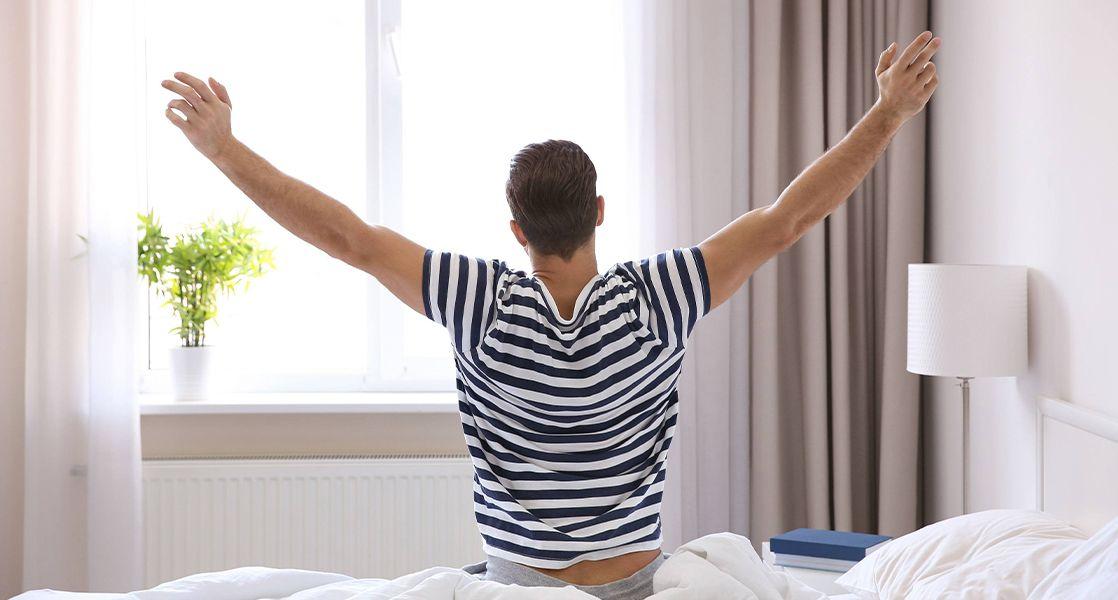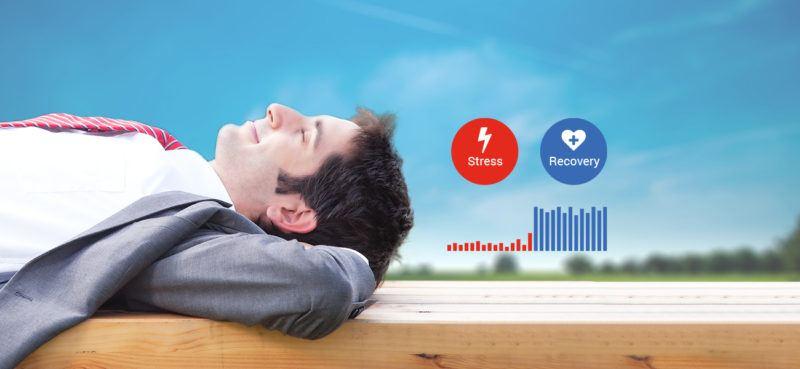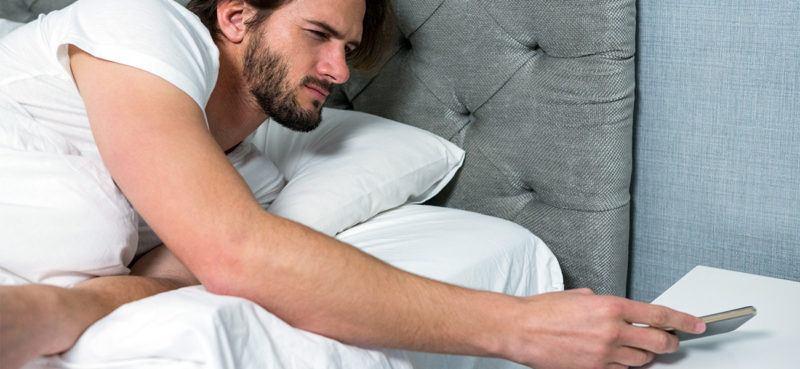
Last month, I attended the Somnex Sleep Show in London where I heard several interesting presentations and perspectives on sleep: from scientific findings and sleep lab results to statistics and practical tips. Predictably, there was strong consensus that sleep is hugely important for good health and performance. It’s a key cornerstone of wellness that needs to be taken seriously both at societal and individual level, and we should move towards “sleeping for success” and away from an “I’ll sleep when I’m dead” attitude.
But, despite the good content, part of me left the show feeling that the messages were packed with negativity and can easily cause (undue) worry. The myriad of well-meaning and attractive – but often expensive or impractical – sleep solutions and gadgets on offer can compound the worry. How can I tell a gimmick from genuine help? What should I do if I have a morning job, yet I’m not a morning person? Does my bedroom need to be a perfectly designed sleeper’s oasis to get great sleep? These are real questions that many of us might struggle with.
Some of the Scary Sleep Statistics
Here are just a few sleep stats that I’ve come across recently:
- 6 out of 10 adults are estimated to suffer from sleep deprivation
- 38% of US adults report having fallen asleep unintentionally during the day in the previous month
- 2/3 of Finns wake up tired on most days and over 70% report disturbing daytime fatigue during the previous month
- 25% of UK adults sleep no more than 5 hours per night; 1 in 3 adults in the US don’t sleep enough
- Sleep deprivation has a negative effect on productivity, memory, decision making, health, happiness, creativity etc.
If taken (too) literally, millions of us are apparently tired, unproductive zombies incapable of rational thought, happiness or creativity. That’s scary – particularly if you happen to be a challenged sleeper, shift worker, parent of young children or woman struggling with menopause. The concept of night owls and morning larks can further add to the pain: if your real-life rhythm goes against your natural biorhythm (e.g. an owl who starts work at 7 am), it’s not an easy fit. Yet, most people cannot simply build their day to match their natural rhythm.
A good night’s sleep, what does it mean? Read blog →
Don’t get me wrong, I firmly believe sleep is crucial for good health and serious sleep problems are a serious health issue, requiring expert help beyond the scope of this blog. My attempt here is simply to look past the negative sleep statistics and offer a more hopeful view on sleep based on practical guidelines, physiological data insights, discussions with hundreds of people, and personal experiences.
Taking Control
There’s no one truth when it comes to sleep because we are all affected by our own realities – genetics, age, illness, unexpected life situations. However, as we head into the final two months of the year – where Firstbeat data shows that people’s stress is at its highest and recovery at its lowest – I’d like to pose a sleep challenge: Let’s attack the negative sleep statistics and reverse this end-of-the-year struggle. If we listen to our bodies and start doing things a little bit better, as often as possible, we can move in the right direction. Even if perfect sleep might be a long way off for many of us, small improvements can add up to a more restorative snooze.
This topic hits home with me because I’m a challenged sleeper; strange settings and exciting or stressful events have always messed with my sleep, at least temporarily. With age, good sleep has become even harder to come by, thanks mostly to the crazy female hormones that mess with us 50-something women. At the same time, I’ve learned a lot about what I should (and should not) do to try to maximize the odds of good sleep.
Here’s my personal Top-10-for-better-sleep list:
- Prioritize sleep!
- Avoid intense exercise in the evening
- Minimize alcohol (This is a big one – anything more than 1 unit starts to mess with sleep quality)
- Avoid caffeine after 3 pm & heavy foods in the evening
- Minimize emails, internet and phone use in the 1-2 hours before bed (use the night mode if you do!)
- Apply night mode in the house: dim the lighting when it gets closer to bedtime
- Slowdown! When possible, replace chores with gentle stretching and breathing exercises in the evening
- Create a dark bedroom (very easy up here in the far North for the next few months!) with comfortable pillows + bedding
- Use earplugs if it’s noisy (husband snoring or when staying in noisy hotels)
- Stick to a regular go-to-bed and get-up routine
I’ve learned that a bad night’s sleep here and there is ok, and sometimes it seems to happen regardless of what I do. I try not to stress about it and I’m sure that in the long run I’m better off trying to stick to these principles. For biggest impact, you should try creating your own list that is relevant and realistic to you and your current life situation.
Be Flexible
I try to follow most items on my list most of the time, but I also want to enjoy life and not live by a rule book. I have a couple of glasses of wine now and then and chores do sometimes get in the way of a relaxing evening. The final tip on my list is particularly tricky. Experts say we should go to bed and wake up at the same time all week. However, the feeling of no alarm and sleeping in on the weekend is mentally so nice that I often partially ignore that guideline. Getting a few extra hours on my day-off seems better for my well-being than if I woke up to an alarm at 6.30! Completely turning your schedule around is a different matter; stay up until 3 am and sleep until 11 am, and you will likely have problems getting up for work on Monday morning.
Most importantly, prioritize sleep, find out what works for you, and follow your personal sleep list as often as possible – and you’ll almost for sure be better off than if you leave sleep to chance. Sleep tight!
Are you searching for that eureka moment with a client? Firstbeat Life is a leading technology to support the health and well-being of your customers. Are you interested in hearing more, then download Firstbeat Life for partners’ virtual launch event recording.
You might also be interested in

Highlights of Our Recent Firstbeat Events in London: Towards Better Corporate Performance and Healthier Employees
A review of the Corporate Breakfast and Professional User Workshop events held in London.

At the Heart of Stress and Recovery
Stress can be defined as a situation where the demands that a person is faced with are greater than the available resources. Stress can also be described as the body’s physical and mental adaptation to real or perceived change.

How to Design Your Weekend to Boost Recovery for the Working Week
With Saturday many people’s ‘most stressful day’, your weekend might not be as full of recovery as you first thought. Here are tips to boost your recovery.

